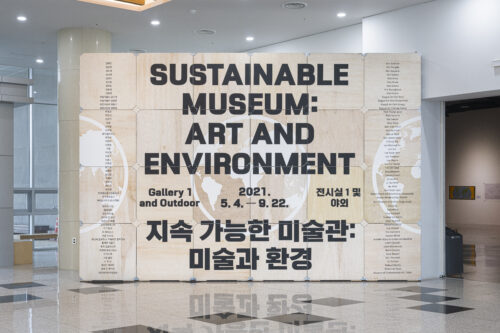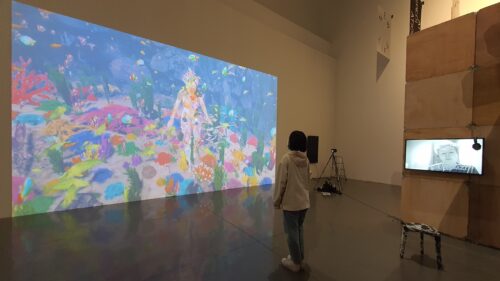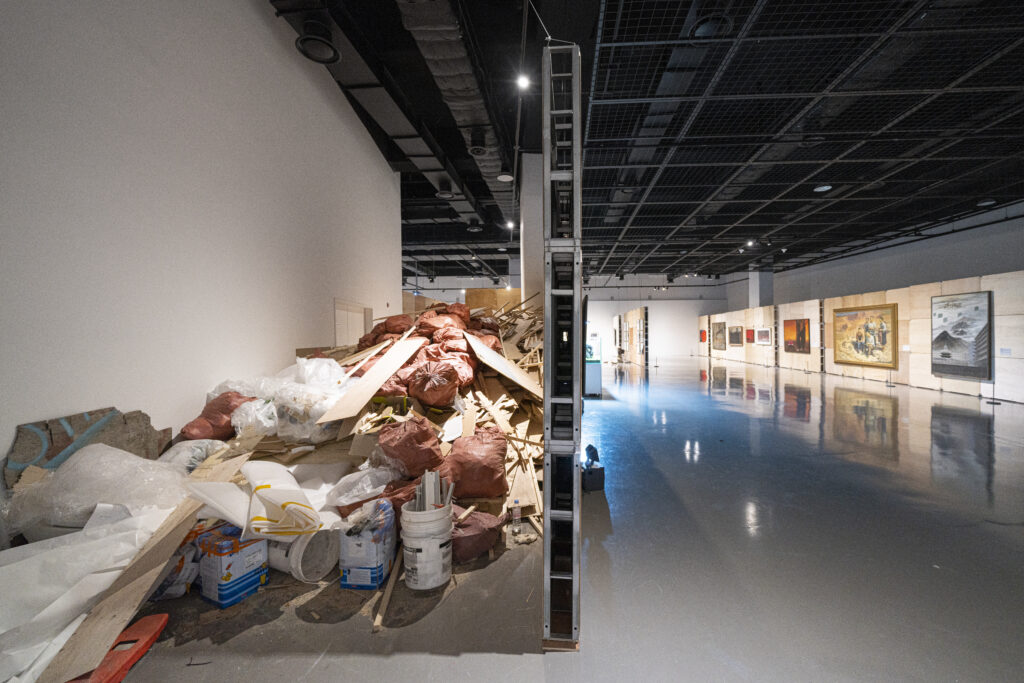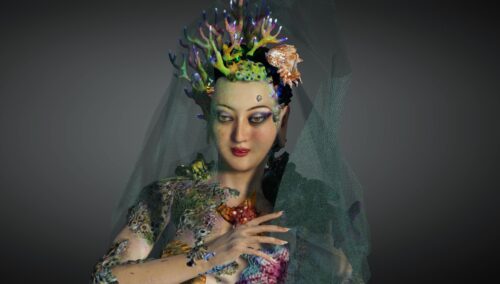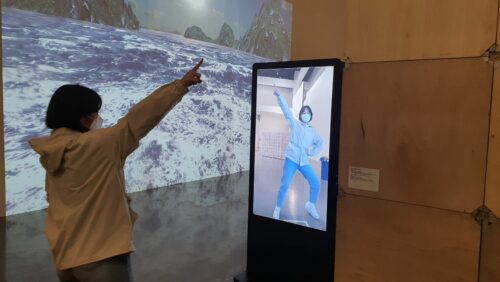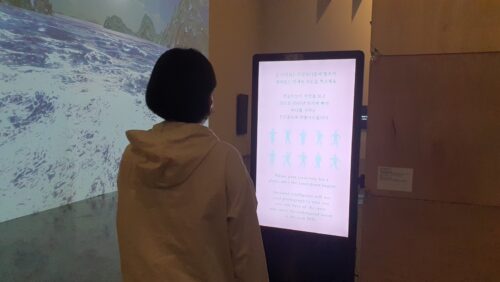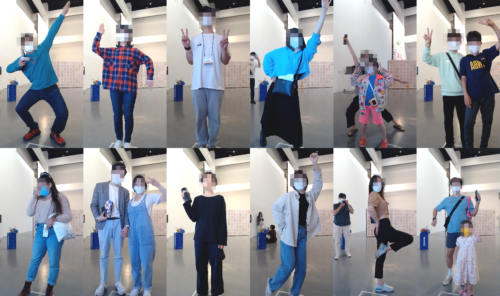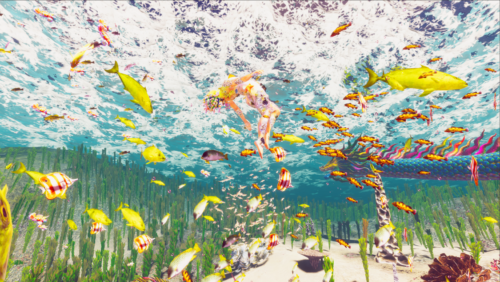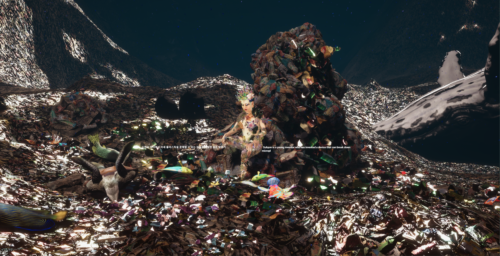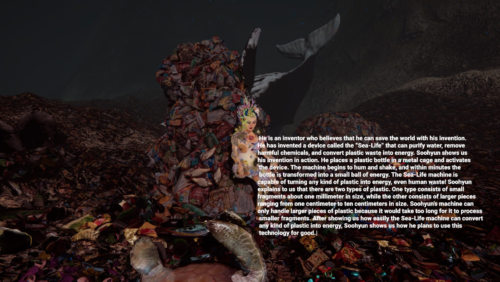Water Has Memory, 2021 [Link]
Real-time interaction with AI.
Continuous run.
What can we do when a problem is so complex and deeply rooted that we lose hope? The project, “Water Has Memory (WHM)”, addresses the severity of ocean pollution, more specifically of microplastics. “WHM” is an interactive storytelling installation using artificial intelligence to generate fictional short stories taking place in the year 2050, when the oceans have been devastated from marine pollution. By assigning the audience as the story’s protagonist, named Soo-hyun, whose name means “Enlightened Water”, it attempts to restore our empathetic connection to the ocean and reinstate our agency. Upon approaching the piece, the audience is asked to strike a pose in a front of an installed camera. Then an image captioning process generates a sentence to describe the picture through a machine learning model. The produced image caption, in turn, assigns the audience as the protagonist of a futuristic fictional story, which is generated by another deep learning model, GPT-3, developed by Open AI, which composes the story based on a formulated prompt. As the backdrop of the story, “WHM” begins with a virtual underwater environment that seems to be healthy and thriving with marine life along with a mythic creature, “Yongshin Booin”, the Dragon Goddess, who according to traditional Korean folklore is an animistic deity that presides over the domain of water. However, the marine ecosystem slowly deteriorates, and the Goddess, while sitting on top of a pile of trash, sympathetically gazes upon the suffering animals, her own children. She narrates a story to us that begins with the heroic protagonist, Soohyun. Although the present state seems bleak, Soohyun, the Goddess tells us, brings hope. “WHM “ depicts us as individuals who are empowered to shape the fate of our marine environment through our actions, and therefore, as agents who can dream of a better world.
Thus, it urges us to free ourselves from existential and ethical paralysis and believe in our capacity to act.
